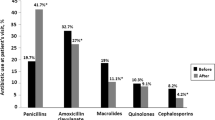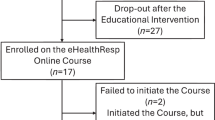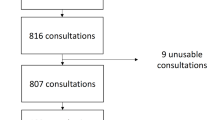Abstract
Primary care physicians are frequently confronted with patients suffering from symptoms of acute rhinosinusitis (RS), and may resort to antibiotic management guided by traditional treatment approaches or in response to patient expectations. Acute RS symptoms are now thought to be caused largely by host inflammatory responses and not solely by infectious agents as was once assumed. An increasing amount of evidence confirms that, for routine treatment of uncomplicated acute RS, antibiotics are of little or no benefit in most cases. Further, inappropriate prescription of antibiotics for acute RS contributes to the worsening problem of antibiotic resistance, puts patients at risk of unnecessary side effects, and drives up the cost of medical care. Therefore, treatment goals are shifting toward efforts to quell the inflammatory process in the sinuses and restore normal sinus functioning. Clinical studies with intranasal corticosteroids support their usefulness as monotherapy or adjunctive therapy in relieving symptoms of acute RS, and recently published treatment guidelines recommend their use as a general management measure for RS, with antibiotics reserved only for more severe cases when a bacterial aetiology is highly suspected. This changing paradigm reflects current understanding of acute RS pathophysiology, and addresses the need to curtail unnecessary antibiotic usage.
Similar content being viewed by others
Article PDF
Author information
Authors and Affiliations
Corresponding author
Ethics declarations
Competing interests
Dermot Ryan has provided consultancy services for, lectured on behalf of, or had attendance at conferences subsidised by, Altana Pharma, AstraZeneca, Boehringer Ingelheim, Teva, Ivax, Schering Plough, Merck Sharpe and Dohme, GlaxoSmithKline, Pharmacia and Novartis.
Rights and permissions
About this article
Cite this article
Ryan, D. Management of acute rhinosinusitis in primary care: changing paradigms and the emerging role of intranasal corticosteroids. Prim Care Respir J 17, 148–155 (2008). https://doi.org/10.3132/pcrj.2008.00050
Received:
Revised:
Accepted:
Published:
Issue date:
DOI: https://doi.org/10.3132/pcrj.2008.00050



